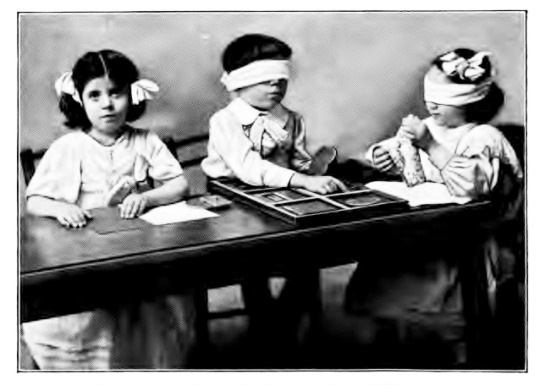The (Un)Schooling of Formal Education?
公教育の(非)学校化?
“I have never let my schooling interfere with my education” – Mark Twain
Like many other countries, the United States is in the midst of an educational crisis. Its university system is a paradox where the price of tuition has skyrocketed while the quality of the education it provides seems in decline. In 2014, for example, the average college student had $30,000 in educational debt, and yet less than 60% of students successfully graduate college within six years. The situation is equally troubling in many public elementary and high schools across the country that are experiencing a decrease in funding at the very moment when they are expected to implement a controversial, national effort to improve education through a curriculum called the Common Core.
The Common Core is meant to do two things: (1) To make student learning more relevant by focusing less on the memorization of facts and more on critical thinking so to prepare students “for college and the real world,” and (2) to create a consistent system to track individual student progress and measure teaching effectiveness. Many parents are angry about the Core because they believe its standardized tests create unnecessary stress that harms their children’s learning experience. Since the introduction of the Core, students have done poorly on its tests, a result that Core supporters think is both natural and temporary, reflecting the low educational expectations that existed before the new standards. The head of the U.S. Department of Education, Arne Duncan speculated that much of the opposition to the Common Core was from “white suburban moms” who feel that “all of a sudden — their child isn’t as brilliant as they thought they were, and their school isn’t quite as good as they thought they were.”
While Duncan was roundly criticized for his comments, they express a growing concern about whether our ideas about education are mirroring trends in American popular culture where — more and more — there is emphasis on the importance of personal confidence over one’s actual skills, abilities, or knowledge. The fear is that making young people (and their parents) feel good has overshadowed the goal of substantial learning itself. If this is true in elementary and high school, then ironically the situation may be even worse within universities where money has been poured into the construction of luxury dormitories and recreational facilities instead of the hiring of more full-time faculty. Indeed, many believe the tripling of college tuition in the last 30 years and the supposed decline of academic rigor can be traced to this trade-off in the attempt to create “student-centered” campuses. If universities have become less about learning and more about catering to student lifestyles, then the whole purpose of the Common Core to prepare students for the “real world” seems at risk of contradiction. Perhaps parents recognize this subconsciously, helping to explain the surprising level of suspicion many have towards the Common Core’s aspirations and its methods.
Given the slow pace and immense complexity of educational reform, what alternatives are there? Paypal founder, Peter Thiel, believes an answer is to drop out of school all together. Over the last three years Thiel’s foundation has given over 60 students a grant of $100,000 each to leave college and pursue their own projects — small businesses and non-profits of various kinds. Alas, Thiel’s fellowships can impact only a few; what’s more, the reason to drop out is not actually to explore a different form of education, but rather to skip education in favor of specific entrepreneurial goals.
Others navigate the even bolder route of “unschooling,” leaving the formal system of educational in the pursuit of self-directed learning that is not only free of tuition, but also free of the mediocre classes, teachers, and regimented schedules that many feel define schools today. Artist Kione Kochi has published a series of semi-autobiographical “zines” called How I Quit School that describe the unschooling experience of a Japanese girl who leaves her Tokyo high school to explore her own educational path:
“Unschooling was a process that would take her forward, but not right away… Being independent in her education meant that she had to be proactive. She knew that. But she also needed to slow down without becoming restless and stay motivated when she felt as though she wasn’t doing enough. There was a lot more to self-teaching than doing what she enjoyed.”
It isn’t that unschoolers deny the value of school completely, instead they recognize when formal education no longer encourages active interest in learning and personal development. Indeed many unschoolers return to formal schooling later, but only when it makes sense to — with authentic interest, but without unnatural obligation. While unschooling isn’t suited to everyone, clearly neither are current systems of education that discourage real learning. Perhaps we, like Mark Twain, need to seriously revisit how school may (and may not) be enough to fulfill the broader aim of a meaningful and life-long education. After all, the larger goal of creating truly sustainable forms of education may be impossible if we rely upon unchallenged assumptions about what students are really learning and what that learning is ultimately for.

References:
“Your So-Called Education” The New York Times (May 14, 2011) By Richard Arum and Josipa Roksa
http://www.nytimes.com/2011/05/15/opinion/15arum.html
The Common Core Standards
http://www.corestandards.org/what-parents-should-know/
“Tricked-Out College Campuses, From Water Parks to Luxury Dorms,” ABCNews.com (Oct 13, 2014) By Katie Yu and Lauren Effron
http://abcnews.go.com/Lifestyle/tricked-college-campuses-water-parks-luxury-dorms/story?id=26164491
“Arne Duncan: ‘White suburban moms’ upset that Common Core shows their kids aren’t ‘brilliant’,” The Washington Post, (November 16, 2013) By Valerie Strauss
http://www.washingtonpost.com/blogs/answer-sheet/wp/2013/11/16/arne-duncan-white-surburban-moms-upset-that-common-core-shows-their-kids-arent-brilliant/
“The Dropout Fallacy,” Slate (May 23, 2014) by Alison Griswold
http://www.slate.com/articles/business/how_failure_breeds_success/2014/05/peter_thiel_drop_out_grant_encouraging_students_to_stop_out_of_college.html
Peter Thiel On Why Everything Good Is Actually Bad And Vice Versa,” Forbes (September 15, 2014) By Jeff Bercovici
http://www.forbes.com/sites/jeffbercovici/2014/09/15/peter-thiel-zero-to-one-book/
“How I Quit School” By Kione Kochi
http://microcosmpublishing.com/catalog/artist/kione_kochi
Growing Without Schooling
http://www.holtgws.com/
